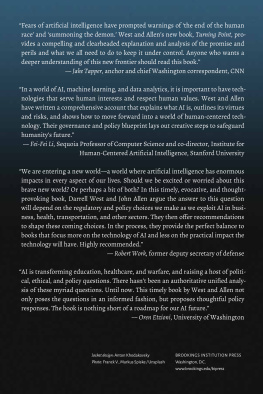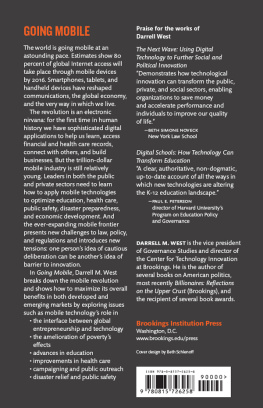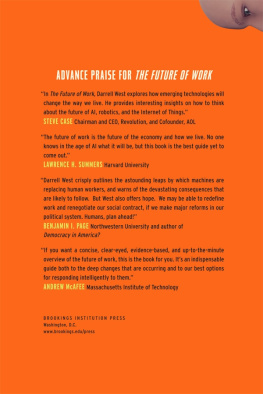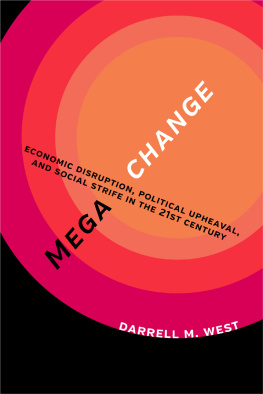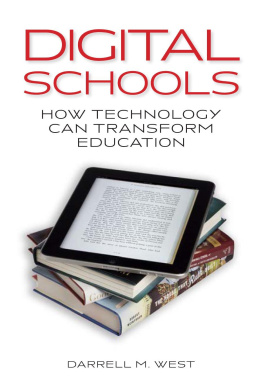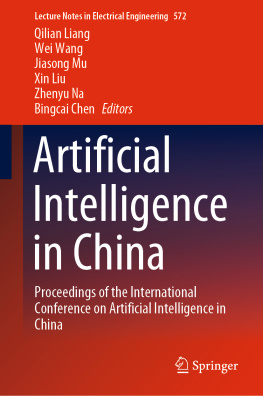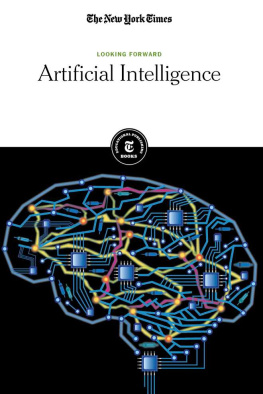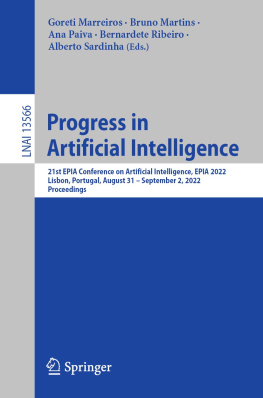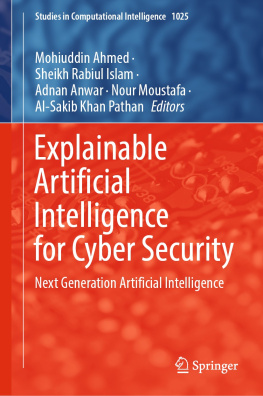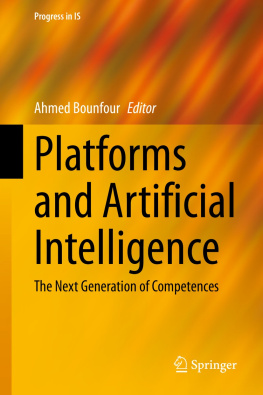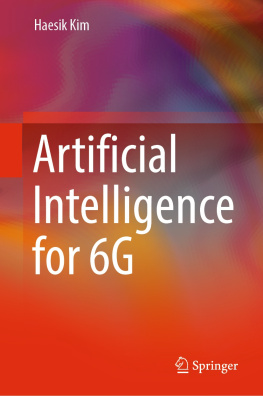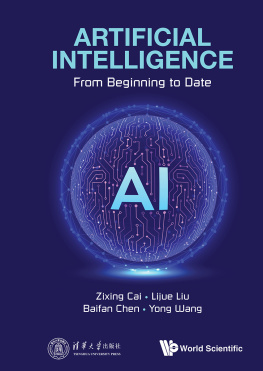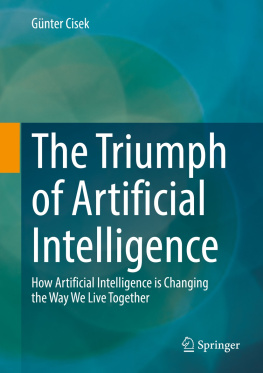Darrell M. West - Turning Point: Policymaking in the Era of Artificial Intelligence
Here you can read online Darrell M. West - Turning Point: Policymaking in the Era of Artificial Intelligence full text of the book (entire story) in english for free. Download pdf and epub, get meaning, cover and reviews about this ebook. publisher: Brookings Institution Press, genre: Romance novel. Description of the work, (preface) as well as reviews are available. Best literature library LitArk.com created for fans of good reading and offers a wide selection of genres:
Romance novel
Science fiction
Adventure
Detective
Science
History
Home and family
Prose
Art
Politics
Computer
Non-fiction
Religion
Business
Children
Humor
Choose a favorite category and find really read worthwhile books. Enjoy immersion in the world of imagination, feel the emotions of the characters or learn something new for yourself, make an fascinating discovery.
- Book:Turning Point: Policymaking in the Era of Artificial Intelligence
- Author:
- Publisher:Brookings Institution Press
- Genre:
- Rating:3 / 5
- Favourites:Add to favourites
- Your mark:
- 60
- 1
- 2
- 3
- 4
- 5
Turning Point: Policymaking in the Era of Artificial Intelligence: summary, description and annotation
We offer to read an annotation, description, summary or preface (depends on what the author of the book "Turning Point: Policymaking in the Era of Artificial Intelligence" wrote himself). If you haven't found the necessary information about the book — write in the comments, we will try to find it.
Turning Point: Policymaking in the Era of Artificial Intelligence — read online for free the complete book (whole text) full work
Below is the text of the book, divided by pages. System saving the place of the last page read, allows you to conveniently read the book "Turning Point: Policymaking in the Era of Artificial Intelligence" online for free, without having to search again every time where you left off. Put a bookmark, and you can go to the page where you finished reading at any time.
Font size:
Interval:
Bookmark:
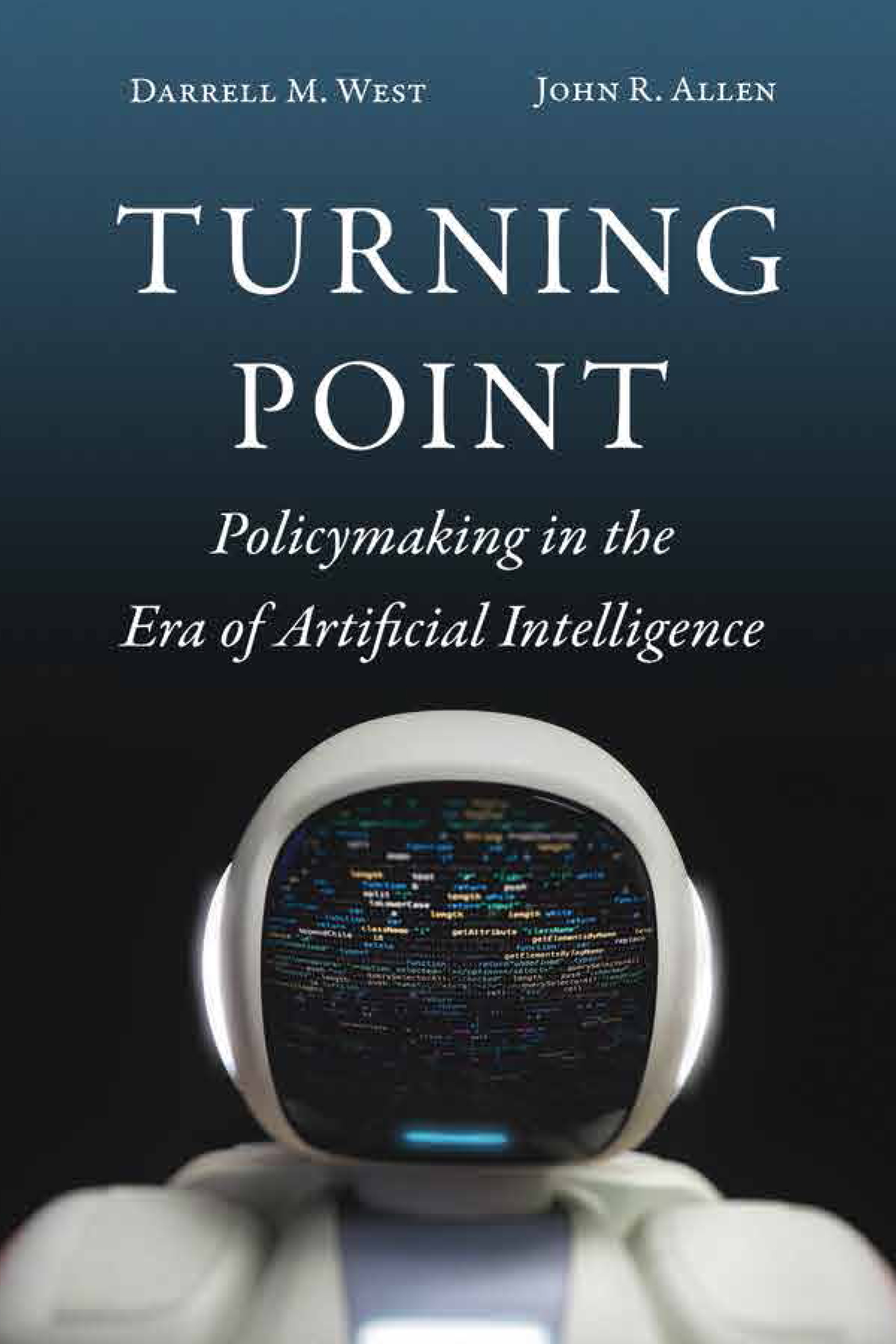
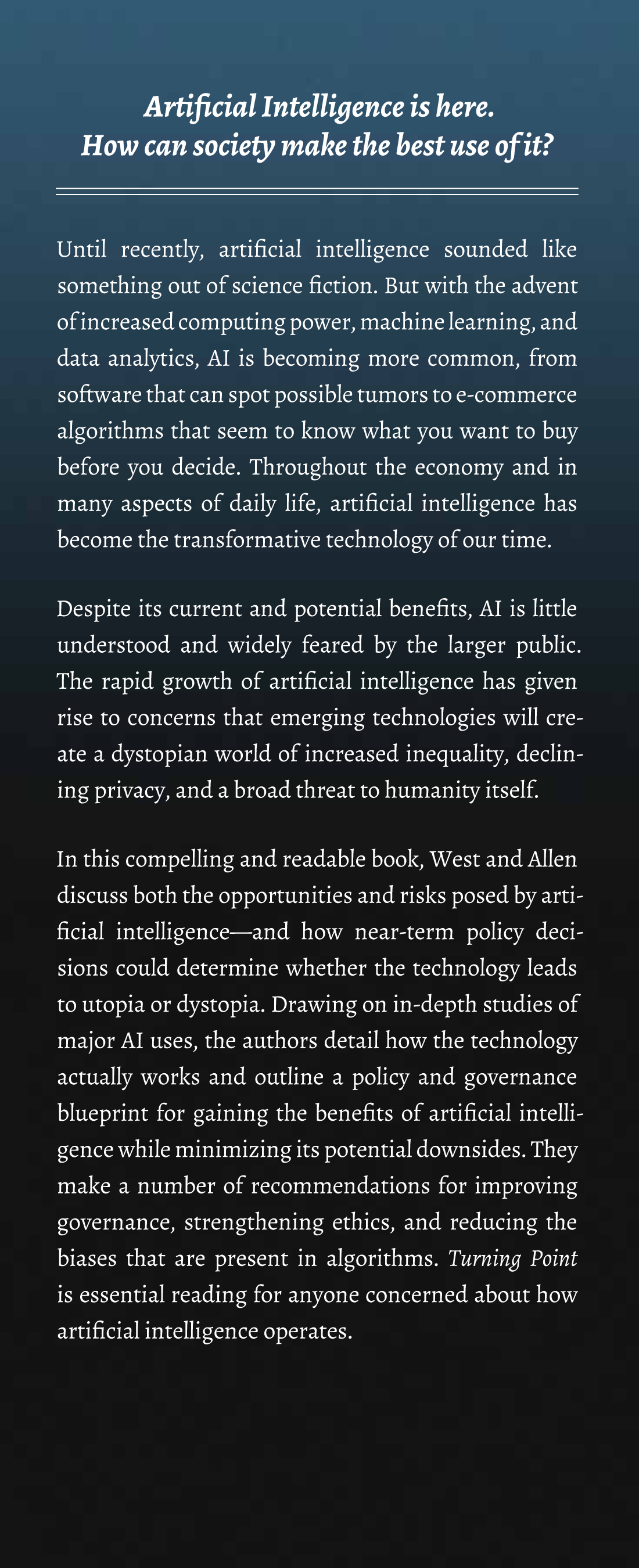
TURNING POINT
Policymaking in the Era of Artificial Intelligence
DARRELL M. WEST
JOHN R. ALLEN
BROOKINGS INSTITUTION PRESS
Washington, D.C.
Copyright 2020
THE BROOKINGS INSTITUTION
1775 Massachusetts Avenue, N.W.
Washington, D.C. 20036
www.brookings.edu
All rights reserved. No part of this publication may be reproduced or transmitted in any form or by any means without permission in writing from the Brookings Institution Press.
The Brookings Institution is a private nonprofit organization devoted to research, education, and publication on important issues of domestic and foreign policy. Its principal purpose is to bring the highest quality independent research and analysis to bear on current and emerging policy problems. Interpretations or conclusions in Brookings publications should be understood to be solely those of the authors.
Library of Congress Control Number: 2020936148
ISBN 9780815738596 (hc)
ISBN 9780815738602 (ebook)
9 8 7 6 5 4 3 2 1
Typeset in Garamond Premier Pro
Composition by Elliott Beard
This book is dedicated to our youth, into whose hands we have placed the full potential of artificial intelligence and other emerging technologies. It is our most fervent prayer they are guided by the light of good in wielding these technologies for the benefit of all humanity.
CONTENTS
PREFACE
A group of technologists was asked by the Pew Research Center whether artificial intelligence (AI) would empower individuals and enhance human capacities. Sixty-three percent of these experts answered in the affirmative and indicated most people would be better off. As shown below, many of these visionaries foresaw a bright future of better health, wider prosperity, and improved access to information:
ERIK BRYNJOLFSSON, director of the Massachusetts Institute of Technology (MIT) Initiative on the Digital Economy: We can virtually eliminate global poverty, massively reduce disease and provide better education to almost everyone on the planet.
LEONARD KLEINROCK, Internet Hall of Fame member: As AI and machine learning improve, we will see highly customized interactions between humans and their healthcare needs.
MICAH ALTMAN, head scientist in the program on information science at MIT Libraries: These technologies will help to adapt learning to the needs of each individual by translating language, aiding memory and providing us feedback on our own emotional and cognitive state and on the environment.
STEVE CROCKER, Internet Hall of Fame member: Encyclopedic knowledge [will be] available at our fingertips.
KEN BIRMAN, professor of computer science at Cornell University: I believe that our homes and offices will have evolved to support app-like functionality. People will customize their living and working spaces.
JOHN HAVENS, executive director of the Institute of Electrical and Electronics Engineers Global Initiative on Ethics of Autonomous and Intelligent Systems: By utilizing blockchain or similar technologies and adopting progressive ideals toward citizens and their data we can usher in genuine digital democracy in the age of the algorithm.
Yet beneath that general optimism, a number of prominent thinkers also expressed doubts regarding these rosy scenarios. They worried about wealth concentration, algorithmic bias, and political authoritarianism. Witness these ominous predictions:
ERIK BRYNJOLFSSON, MIT: AI and ML [machine learning] can also be used to increasingly concentrate wealth and power, leaving many people behind.
ANDREW MCLAUGHLIN, executive director of the Yale University Center for Innovative Thinking: [It will] enable hidden discrimination and arbitrary penalization of individuals in areas like insurance, job seeking and performance assessment.
DANAH BOYD, principal researcher for Microsoft and president of the Data & Society Research Institute: There will be abuses of power that involve AI.
NATHANIEL BORENSTEIN, chief scientist at Mimecast: I foresee a world in which IT and so-called AI produce an ever-increasing set of minor benefits, while simultaneously eroding human agency and privacy and supporting authoritarian forms of governance.
SONIA KATYAL, co-director of the Berkeley Center for Law and Technology: Questions about privacy, speech, the right of assembly and technological construction of personhood will all reemerge in this new AI context.
MARINA GORBIS, executive director of the Institute for the Future: [AI] is likely to create greater economic inequalities.
AMY WEBB, founder of the Future Today Institute: The social safety net structures currently in place in the U.S. and in many other countries around the world werent designed for our transition to AI.
THAD HALL, coauthor of Politics for a Connected American Public: Fake videos, audio and similar media are likely to explode and create a world where reality is hard to discern.
This litany of concerns suggests we are at a watershed moment in human history. Based on these expert assessments, there are vigorous debates regarding whether the emerging digital world will usher in a utopia of good health and widespread prosperity or a dystopian world of unfettered surveillance, income inequality, and pervasive bias. An online survey of over 34,000 adults from around the world undertaken by the 2020 Edelman Trust Barometer echoed experts fears when it found that 61 percent of adults believe the pace of change in technology is too fast and 66 percent worry technology will make it impossible to know if what people are seeing or hearing is real.
The anxiety among experts and the general public is pertinent because each group understands we are on the cusp of numerous AI deployments, and humankind will face choices that no previous wave of technology has demanded. Self-driving vehicles powered by AI already are being pilot tested; students are being assigned to charter schools via AI algorithms; companies are using AI on their e-commerce sites to make product recommendations; healthcare is being assessed through data analytics and AI; and warfare is incorporating autonomous weapons in national defense.
In this book, we examine the use of artificial intelligence and emerging technologies in healthcare, education, transportation, e-commerce, and national defense. We study these topics because each area represents a major sector where AI is poised to alter how businesses, governments, and consumers operate. Using a number of different illustrations, we ask how emerging technologies are being utilized, what opportunities are being created, and which risks are arising.
It is crucial to analyze AI implementation in specific domains to decipher its full implications for governance, society, and ethics. One cannot address big questions about digital health, personalized education, autonomous vehicles, e-commerce, and national defense without a thorough discussion of how AI is being deployed. We believe regulations and policies will be crucial in determining AIs future, as will corporate decisions, legal liability rules, and consumer sentiments.
In addition, we analyze how AI affects broader geopolitical considerations in a world bedeviled by pandemics, income inequality, and climate change, among other challenges. International relations is changing rapidly, and a number of nations are making tremendous progress in their technological capabilities. China, for example, is expected to become the worlds largest economy by 2050 and a global leader in AI. It is putting considerable money into AI-related commerce and defense. There also are important AI developments in France, Germany, the United Kingdom, Russia, India, Israel, and elsewhere that will affect how AI expands.
Font size:
Interval:
Bookmark:
Similar books «Turning Point: Policymaking in the Era of Artificial Intelligence»
Look at similar books to Turning Point: Policymaking in the Era of Artificial Intelligence. We have selected literature similar in name and meaning in the hope of providing readers with more options to find new, interesting, not yet read works.
Discussion, reviews of the book Turning Point: Policymaking in the Era of Artificial Intelligence and just readers' own opinions. Leave your comments, write what you think about the work, its meaning or the main characters. Specify what exactly you liked and what you didn't like, and why you think so.

